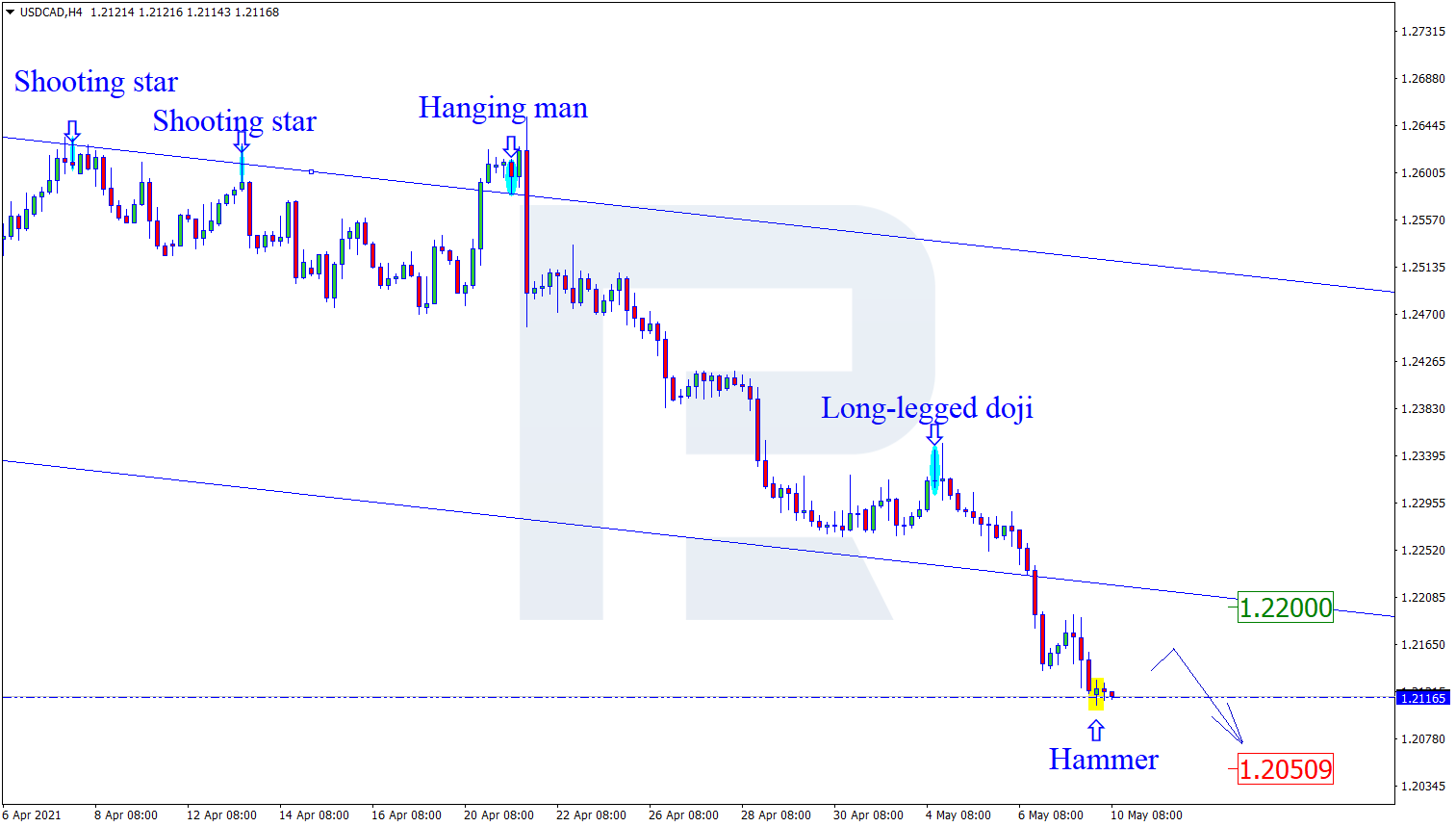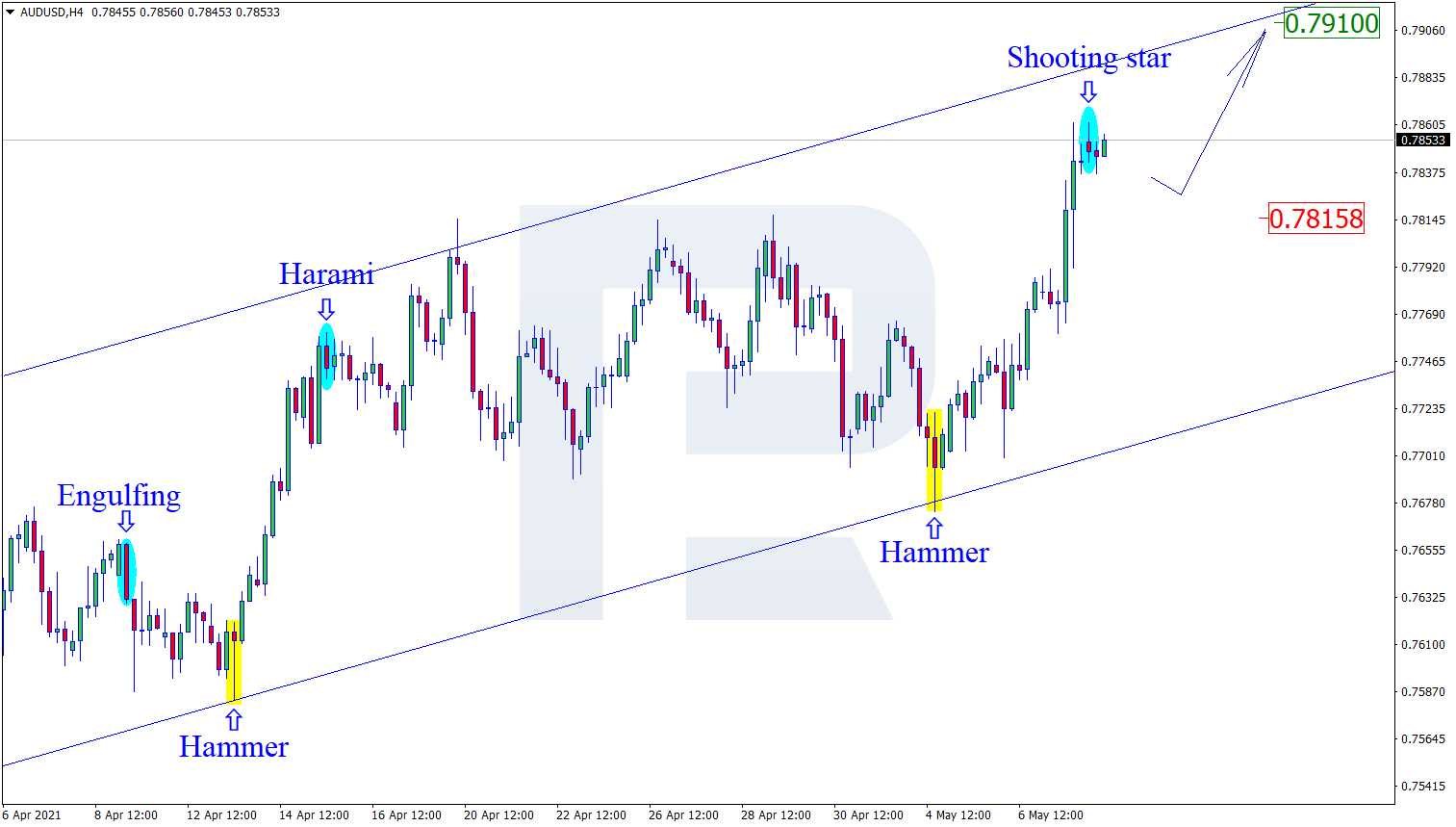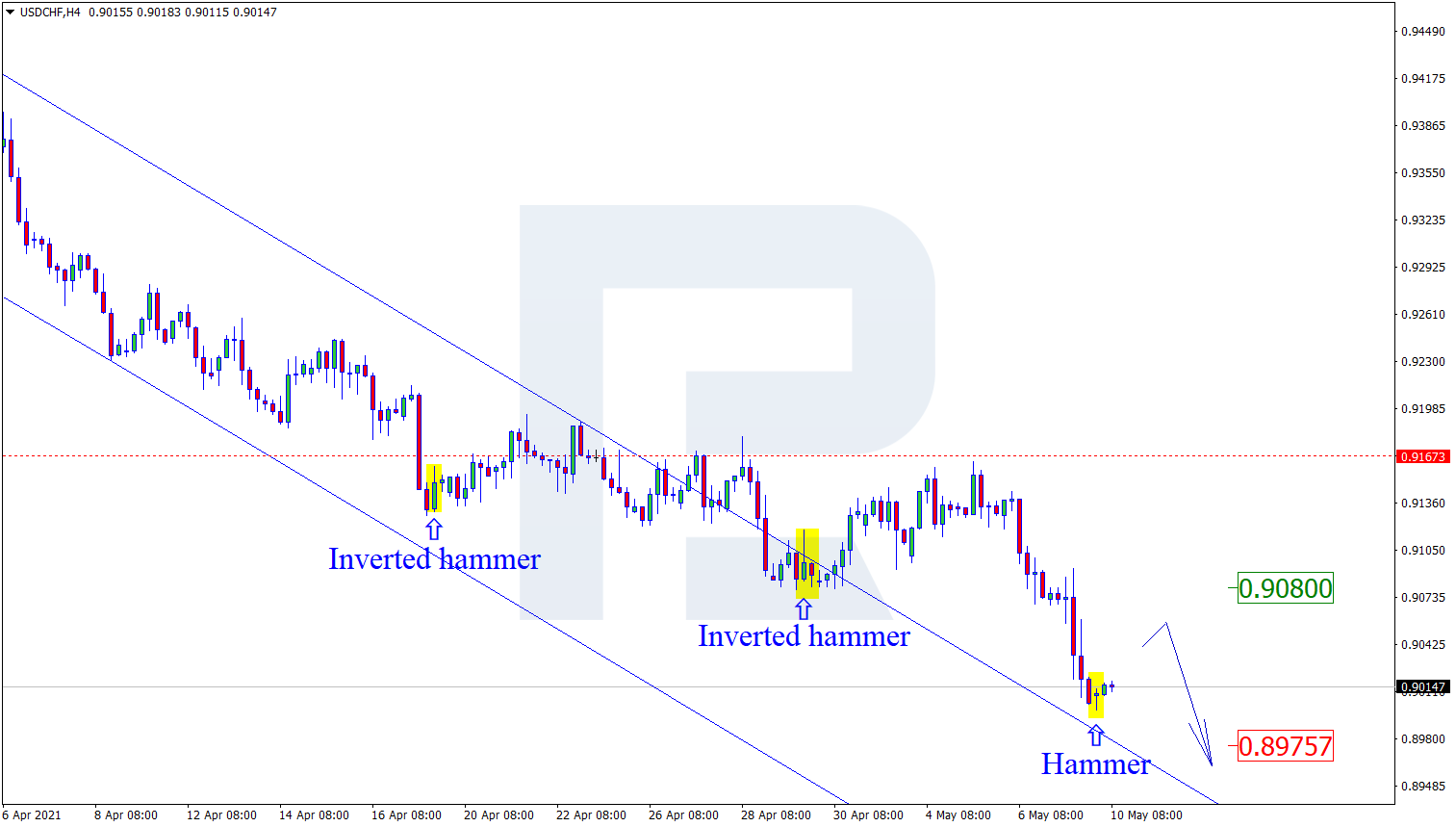Japanese Candlesticks Analysis 10.05.2021 (USDCAD, AUDUSD, USDCHF)
USDCAD, “US Dollar vs Canadian Dollar”
As we can see in the H4 chart, after forming several reversal patterns, including Hammer, not far from the support level, USDCAD may reverse and start a new correction towards 1.2200. After testing this level, the price may rebound and resume its descending tendency. However, an alternative scenario implies that the asset may fall to reach the support level at 1.2050 without reversing and correcting.


AUDUSD, “Australian Dollar vs US Dollar”
As we can see in the H4 chart, AUDUSD has formed several reversal patterns, such as Shooting Star, not far from the resistance level. At the moment, the asset may reverse and start another correction. In this case, the correctional target may be the support area at 0.7815. At the same time, an opposite scenario implies that the price may grow towards the resistance level at 0.7910, break it, and then continue the ascending tendency.


USDCHF, “US Dollar vs Swiss Franc”
As we can see in the H4 chart, the asset is still moving sideways within the downtrend. At the moment, after forming several reversal patterns, such as Hammer, not far from the support area, USDCHF may reverse and form a new pullback. In this case, the correctional target may be the resistance level at 0.9080. Still, there might be an alternative scenario, according to which the asset may continue falling to reach 0.8975 without reversing and correcting.


Forecasts presented in this section only reflect the author’s private opinion and should not be considered as guidance for trading. RoboForex bears no responsibility for trading results based on trading recommendations described in these analytical reviews.
